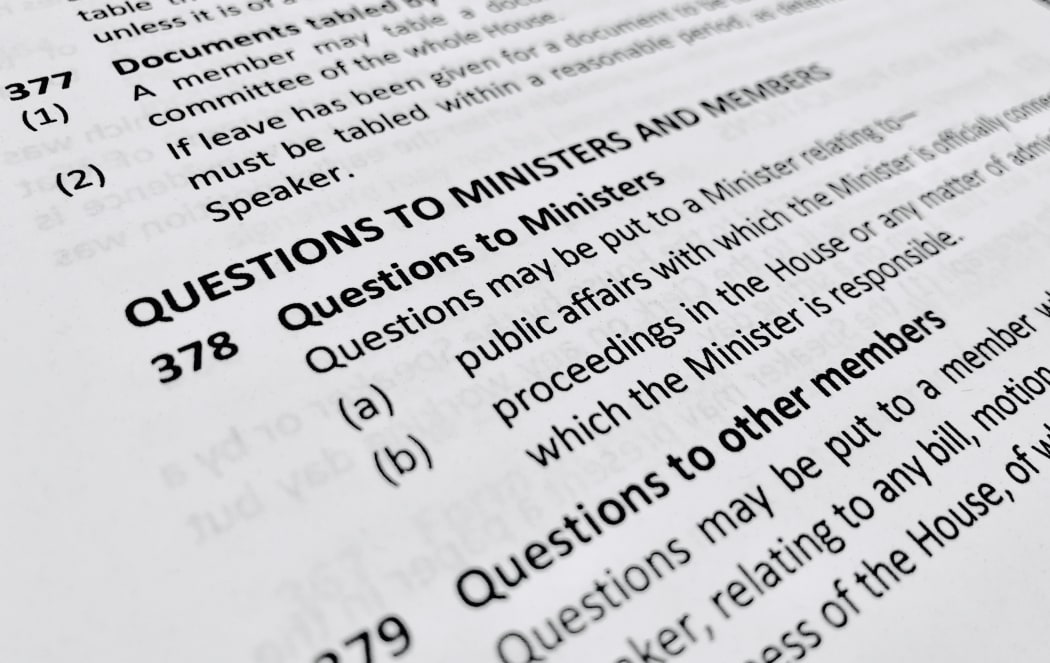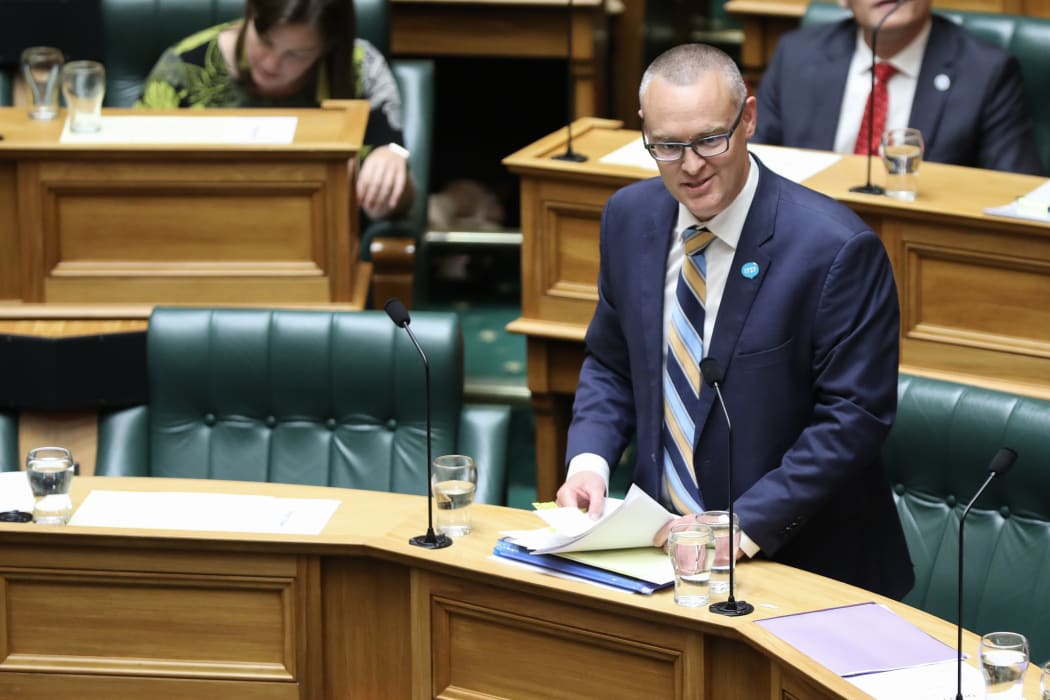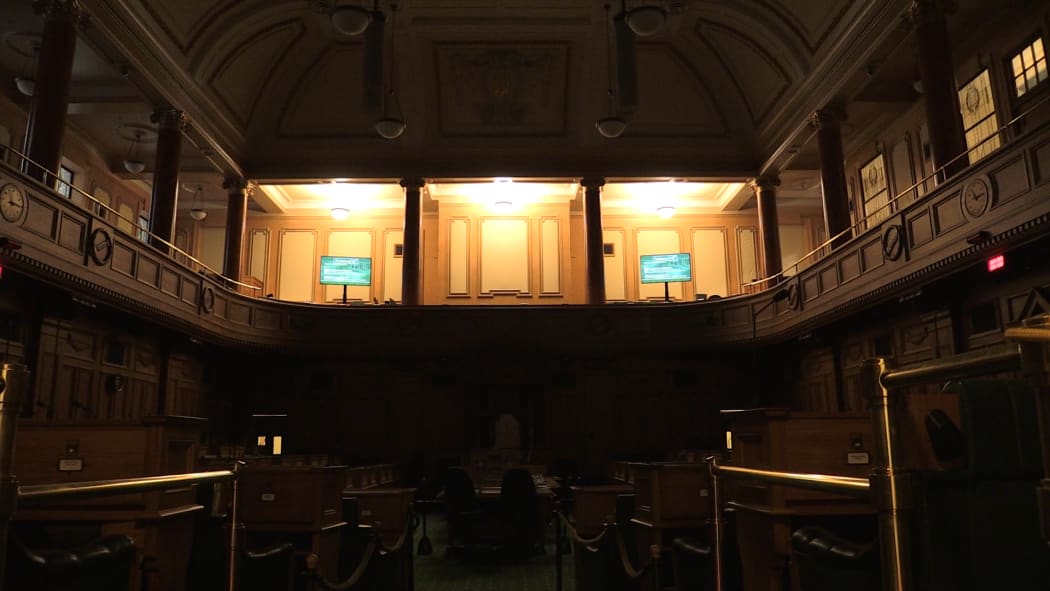It's the last day of sitting before Parliament takes a three week break.
MPs will head back to their constituencies during the break or sometimes head off on an inter-parliamentary trip but before that they have to get through the business below.
Below is an indication of what the House will try to work through but sometimes things change.
Business statement - 2pm

The Leader of the House Chris Hipkins will make a business statement before the House starts question time. Photo: VNP / Daniela Maoate-Cox
Every Thursday the Leader of the House gives a brief summary of what the Government will put forward to work on during the next sitting week.
Sometimes the Shadow Leader of the House in Opposition will ask questions like if there are any plans for urgency or if a particular bill will be worked on.
Question time - 2pm

Photo: VNP / Daniela Maoate-Cox
Up to 12 oral questions to Ministers. This normally lasts about an hour and is meant as a tool for MPs to hold the Government to account.
Opposition questions should be hard-hitting while MPs from Government parties tend to take a softer approach.
The Prime Minister and Leader of the Opposition are rarely in the House on a Thursday meaning their deputies often step into the spotlight.
Helping farmers with debt - first reading

Minister of Agriculture Damien O'Connor Photo: RNZ / Dom Thomas
What:
-
As the name suggests this bill will require secured creditors who lend money to farmers to offer mediation to farmers if they default on payments, before taking enforcement action.
-
The scheme will apply to loans that are secured against farmland, farm machinery, livestock, and harvested crops and wool. It won’t cover debt linked to lifestyle farms, forestry, wild harvest fishing, and hunting or trapping of animals.
-
First reading debates are used to outline the purpose of the bill and indicate initial support of opposition for it. Sometimes MPs support a bill through its first reading so they can examine it more closely at the select committee stage.
Why:
-
Things like climate change, biosecurity threats, and international market changes can affect farmers’ ability to pay debt on time so this bill aims to provide fair, timely resolution of issues around farm debt between creditors and debtors.
Who:
-
Minister of Agriculture Damien O’Connor is in charge of the bill.
All in favour?:
-
It’s a Government bill so it will have the numbers to pass its first reading.
Election exemption - second reading

Labour MP Dr David Clark in the House Photo: VNP / Phil Smith
What:
-
The New Zealand Public Health and Disability (Waikato DHB) Elections Bill
-
Thi bill exempts the Waikato District Health Board from the 2019 triennial general election
-
Second reading debates are held after bill has been considered by a select committee. That committee writes a report and MPs comment on the report during this debate. The report from the Health Committee can be read here.
Why:
-
The bill says “The Waikato DHB has long-standing financial and organisational performance issues that will require time to address. Improving the DHB’s performance is likely to require a range of solutions, some of which could include more medium-term actions that need to be implemented after the commissioner’s current term expires on 9 December 2019. This Bill would allow the commissioner more time to undertake further work in improving the Waikato DHB’s performance. A new board taking office in 2022 should then have a more secure financial and organisational position from which to begin its term.”
Who:
-
Minister of Health David Clark
All in favour?
-
Yes at its first reading. The committee report also recommended the bill be passed without amendment.
Three years to change water standards - second reading

From the Havelock North vigil, held to commemorate the one year anniversary of the town's gastric illness outbreak. Photo: RNZ / Jemma Brackebush
What:
-
Currently the Ministry of Health has to consult for 3 years and gazette changes for 2 years before making any changes to drinking-water standards. This bill will remove that requirement.
-
It will also clarify that the need for timetables to implement measures that mitigate risks to drinking water; streamline the appointment process of drinking-water assessors; and remove unnecessary references to designated ports and airports.
-
The second reading debate will be about the report from the select committee. The Health committees report can be read here.
Why:
-
The bill draws on recommendations made by the Government Inquiry into Havelock North Drinking Water after the town’s water supply became contaminated in August 2016.
Who:
-
Another bill for the Minister of Health David Clark.
All in favour?
-
Yes for the first reading and the committee recommended the bill be passed with some amendments recommended.
House adjourns - 6pm
The House sits from 2pm on scheduled sitting days with a dinner break at 6pm till 7:30pm on Tuesdays and Wednesdays. It then resumes sitting until 10pm often interrupting a debate. On Thursdays the House finishes up for the week at 6pm.
You can see how much the House gets done each sitting day by going here: Daily progress in the House

Photo: New Zealand Parliament


